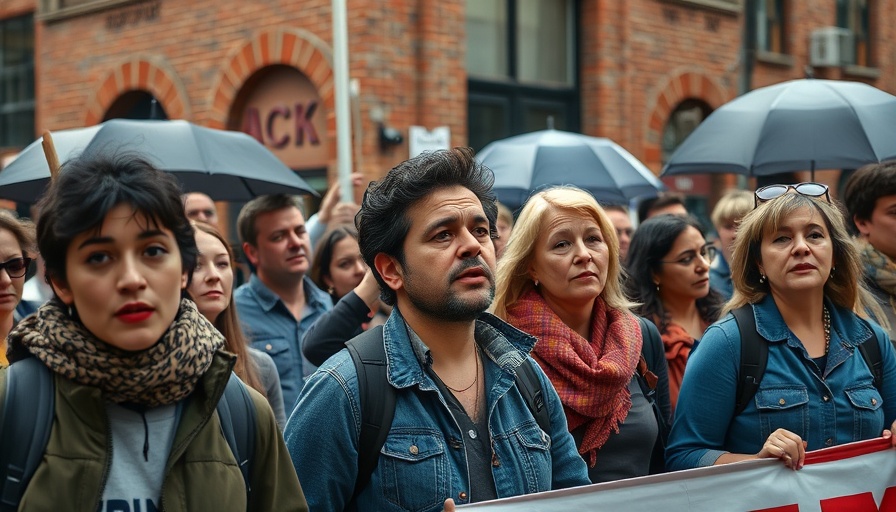
When Politics Collide with Activism: Newark’s Bold Stand
In a surprising turn of events, Newark Mayor Ras Baraka found himself arrested by ICE agents on the steps of a detention center while advocating for the release of individuals detained there. This dramatic incident unfolded on May 9, 2025, highlighting not just the escalating tensions surrounding immigration enforcement but also the growing trend of local leaders stepping into activist roles. Baraka's arrest marks a pivotal moment in the ongoing conversation about immigration policies and their impacts on local communities, particularly in New Jersey where immigrant populations are significant.
The Implications of Local Leadership in Immigration Advocacy
Baraka’s protest against the conditions faced by those in ICE custody reflects a broader movement where local politicians are taking bold stands on contentious issues. As business professionals, this intersection of governance and social justice highlights an interesting trend: leaders are now recognizing their impact goes beyond the corporate or economic realms. This activism could change how communities engage with local governance, as constituents may begin to expect their leaders to take stances—especially on pressing issues that affect their livelihoods and social fabric.
Parallel Movements Across the U.S.
Newark’s situation is not isolated. Cities across the United States have witnessed similar protests where local officials are standing against federal policies deemed harmful to their residents. From sanctuary cities to local funding for immigrant aid organizations, the grassroots movements are reshaping how communities respond to national immigration laws. This activism is instrumental for businesses too, particularly those interested in fostering a diverse workforce and promoting corporate social responsibility.
Future Trends: Activism and Business Intersections
As more local leaders engage in activism around immigration policies, businesses must consider the implications of these developments. The interplay between corporate governance and social responsibility is likely to shape new trends in areas such as employment practices, community engagement, and even market strategies. For companies looking to thrive in this evolving landscape, understanding these dynamics will be crucial to align with the values of their consumers and stakeholders.
In the coming years, the lens through which we analyze migration, labor, and human rights issues will significantly evolve. The rise of corporate activism can serve as a unique opportunity for synergy between ethical business practices and socio-political engagement.
 Add Row
Add Row  Add
Add 



Write A Comment